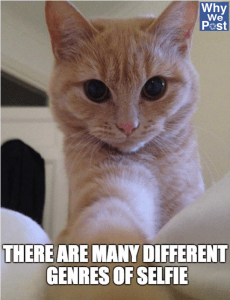Remembering Sylvia Townsend Warner
By Alison Fox, on 31 August 2016
 Today’s guest post is by Peter Swaab, editor of the Journal of the Sylvia Townsend Warner Society and Professor of English at UCL.
Today’s guest post is by Peter Swaab, editor of the Journal of the Sylvia Townsend Warner Society and Professor of English at UCL.
I’m glad to report that I’ve taken on the editing of the Journal of the Sylvia Townsend Warner Society, which is now published by the expanding UCL Press and has its home in the UCL English Department. The Journal was first published in 2000 and has appeared once a year since then, until this year only in a print version with limited circulation. Under the new arrangement it will be continue to published in a print version received by members of the Sylvia Townsend Warner Society, but will also come out electronically, on open access to all. There will now be two issues each year; the first to be published digitally went live online in June and can be found at http://www.ucl.ac.uk/ucl-press/browse-books/journal-of-the-sylvia-townsend-warner-society.
Warner has a following and a growing number of admirers – she is for instance author of the month at the LRB bookshop this month – she remains undervalued and neglected. I hope the Warner Journal, with its newly extended reach and university press base, will make her much better known and more widely read and studied. She was versatile and she was long-lived. Her first book, a collection of poems, was published in 1925. It was read and admired by A.E. Housman and W.B. Yeats and may have been read by Thomas Hardy. Her final book, a collection of astringent fairy stories, appeared in 1977, when the Sex Pistols were in their brief prime. In the years between she was enormously prolific in several genres: seven novels, around 250 short stories, a biography, poetry, a travel book, essays, translations from Spanish and French. She was also a composer and a musicologist before she turned to literature. She was a great letter writer too (three volumes are in print), with an intellectual energy, generous curiosity and verbal flair that never abated. Her friends spoke wonderingly of her rapidity of mind. On waking of a morning she could at once carry on the conversation of the previous evening, full throttle, no coffee needed. She lived most of her life with another woman, Valentine Ackland, was a member of the communist party, twice went to Spain during the Spanish Civil War. She’d be around the table at my fantasy dinner party, along with Jean Renoir, John Keats and a few others who change from month to month.
What can literary criticism do with a writer of such fertility and scope as Warner? As yet, it hasn’t done nearly enough; there is, for instance, no critical monograph on her writing (though Claire Harman has written a fine biography). Her main genres – the historical novel and the short story – are often condescended to. Both her longevity and her versatility hinder the categorizing that helps writers onto curricula. Her career represents a challenge to current ways of thinking about literary history. Although her writing is formally audacious she does not fit readily into a story of avant-garde ‘modernism’. Terms such as ‘intermodernism’ and the ‘middlebrow’ have been brought forward recently to challenge the straitjacketing narrative that sees experimental modernists on one side and all the rest on another. Such terms help a little with Warner, but she is too long-lived for the one, too difficult for the other. The categories, moreover, can be tendentious, with ‘modernism’, for instance, doing double service as partly a descriptive and partly an honorific category. And literary periodization is hard to apply cogently to such long-lived writers as Warner, West, Isherwood, Lehmann, or Rhys.
I’d like the Journal, like Warner herself, to have a crossover appeal within academia and beyond. There are five categories of contribution that I want especially to encourage:
- Writers on Warner, with (I hope) contributions from writers who are on record as Warner’s admirers (these include Colm Tóibín, Ursula Le Guin, Ali Smith, Sarah Waters, Adam Mars-Jones, Richard Howard, Wendy Mulford – and the list could go on).
- Works by Warner, both fugitive and uncollected pieces, and unpublished manuscripts from the extensive archives in the Dorset County Museum.
- Biographical accounts. Warner died in 1978, so there are many people who knew her, and she tends to be recalled vividly.
- Articles on Warner’s writings and also on those figures with whom she could be associated either in her life or her literary affiliations. These include quite a range, among them the Powyses, David Garnett, Bowen, Woolf and T.H. White in literary Britain, Proust, Colette and Huguenin in France, John Craske in the art world, Vaughan Williams, Ireland, Nordoff, Britten and Pears in the world of music.
- Reviews of books and editions that include discussion of Warner and sometimes of her literary or musical associates and friends.
The second number of the Journal to be digitally published is in preparation now, scheduled for publication in December 2016.
About the Author
Peter Swaab is editor of the Journal of the Sylvia Townsend Warner Society and Professor of English at UCL. Prior to joining UCL in 1990, he was Research Fellow at Queens’ College, and Director of Studies in English at Corpus Christi College.
 Close
Close




